Strategic Planning: The Process of Defining Business Strategy
It is important to understand strategic planning, so you can have a solid layout for your business. Without this strategy, you can find yourself having a difficult time when trying to grow your business.
What is Strategic Planning?
Strategic Planning is defined as a process that determines the visions and goals of an organization and matches them to a strategy.  This is helpful in allocating current resources, setting priorities, and making sure everyone on your team is on the same page.
This is helpful in allocating current resources, setting priorities, and making sure everyone on your team is on the same page.
When a sequence of goals is plainly laid out, employees and stakeholders can work together towards common objectives, which creates a more efficient organization.
Without the strategic planning process, it can be difficult for an organization’s team to effectively work together. Now that we have defined what “Strategic Planning” means, let’s look at the process to better understand how you can implement this for your organization.
Strategic Planning Process
To begin with, the strategic planning process usually has an outlook of three to five years.
While there are many short-term strategies that will be used in your organization, the strategic planning process will cover a more broad, medium to long-term plan to cover the goals and vision of the business.
This process will be compiled into a document called a strategic plan. Before we dive into the specifics of what a strategic plan can look like, let’s look at the strategic management framework.
Strategic Management Framework
The management process and framework is usually led by a “strategic planning committee”.
Organizations typically create this committee with representatives located in different areas of the business or enterprise. 
Competitive Strategy: 4 Key Elements
In Michael Porter’s book, “Competitive Strategy: Techniques for Analyzing Industries and Competitors”, he goes over four key elements that go into competitive strategy.
- Company strengths and weaknesses
- Personal values of the key implementers (i.e., management committee)
- Industry opportunities and threats
- Broader societal expectations
The first two items are associated with the internal environment of the organization while the second two items deal with external factors.
Each item on this list should be carefully considered along each step of the strategic planning process before completing a strategic plan. 
Strategic Planning Framework & Process
Inputs
This beginning part of the process is meant to gain a clear understanding of the organization and industry, both internally and externally.
Data can be gathered from interviews with key members and stakeholders in an enterprise, competitive research, industry research, and any other data source that can be beneficial to the business. 
With the individual values of each key player, you can later craft exceptional goals and visions of the organization. After the data has been collected, the next step in the strategic management process is activities.
Activities
This is the part of the process where all of the key members in the strategic management committee gather together to share and collect their ideas. 
This activity phase should raise some very important questions for the business. A very important part of this step is to communicate an understanding of the Unique Value Proposition and the Statement of Value.
Unique Value Proposition
The unique value proposition is a statement that describes the benefits of your product or service and how it is different from the competition. This is also referred to as a unique selling proposition (USP). The UVP is a fantastic way to make sure that you have a product that will solve your target market’s needs.
Statement of Value
While the statement of value has only been around for a few years as compared to the unique value proposition, it is just as important, if not more important, than the unique value proposition in the market today.
This is because the statement of value focuses on the customer rather than the product or service.
To create the statement of value, simply fill in the blanks for this sentence. ___________ enables ___________ to experience ____________.
The first blank should contain the product or service that the organization is offering.
The second blank describes the customer or company’s target audience.
The third blank should describe the desired “After” state of the customer.
By collaborating on the statement of value and the unique selling proposition, you are able to determine how the product or service is unique and how it provides a solution to your target persona.
Outputs
The output phase of the strategic planning process is the documentation and communication that goes into the strategic plan. This strategic plan can include a report on the competitive environment, a structured layout of objectives and processes to achieve the organization’s goals, and specific actions that should be implemented over the course of the next three to five years. There are many resources that can be used in this part of the strategic planning process. This could include templates for financial statements, a balanced scorecard, or a strategy map. While it is not necessary to use all of these resources during the strategic planning process, it is good to know there are resources available. Creating an operational budget is a key part of the output process. While creating financial statements for the next three to five years may seem unnecessary, it can be a crucial projection of how to use valuable assets. 
Outcomes
Outcomes are the result of strategic implementation. They can vary greatly from business to business and is dependent on the business goals and vision set in earlier parts of the process. Keep in mind that the organization should be prepared for unintended outcomes or not being close to the goals and visions set in the activities process. Even with knowing how the strategic planning process works, it is helpful to take advantage of the hundreds of resources and tools available. We have chosen some of our favorites to help your organization plan for future success.
Strategy Management & Planning Tools
The following is a list of free tools and resources to assist your organization during the strategic planning process.
Business Model Canvas
The business model canvas is an excellent framework resource to understand how everything in your business would work together. While it is an extremely basic framework, it helps with keeping important aspects of your business as simple as possible to not overthink them. Download the Business Model Canvas 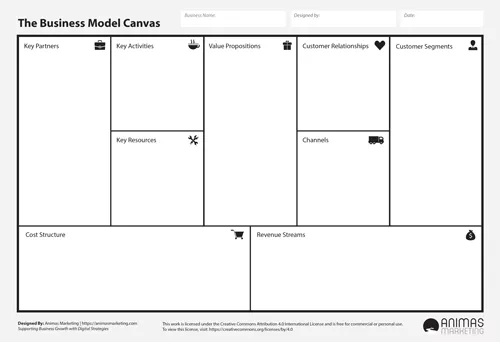
Customer Segment Worksheet
This resource will break down exactly who your target audience should be. Many organizations may have an understanding of the demographics and location of their potential customers but this resource goes so much deeper by asking the question why. This tool assists in stepping inside the heads of your target market. What are their challenges? What obstacles may prevent them from buying your product or service? What does the average day look like for them? Download the Customer Segment Worksheet
Balanced Scorecard
The balanced scorecard is possibly the most common tool associated with strategic planning for organizations. This tool allows you to understand if your company’s policies are being implemented in the correct way at the right time. Download the 13+ Balanced Scorecard Templates
Strategy Map Generator
The strategy map is a way to visualize the business goals and visions. This is a helpful way to understand how the business goals work together to oversee the success of the organization. Canva is a fantastic graphic generator tool that can be used for multiple projects within your organization. Here is a template to create a custom strategy map. Canvas Custom Strategy Map Generator
PESTLE Analysis
The PESTLE analysis (or PEST analysis) covers the remote external environmental elements. This is a concept in marketing principles. PESTLE stands for Political, Economic, Social, Technological, Legal, and Environmental. PESTEL Analysis Explained
SWOT Analysis
The SWOT Analysis (also known as the SWOT matrix) is a common tool in business to understand and identify the Strengths, Weakness, Threats, and Opportunities of a business. The analysis is meant to identify the internal and external factors that could be favorable or unfavorable to an organization. The strengths and weakness sections deal with the internal environment of a business whereas the threats and opportunities deal with the external environment. Free SWOT Analysis Template
Porter’s Five Forces Framework
The purpose of Porter’s Five Forces Framework is to analyze the competition of a business. Porter refers to these five forces as the microenvironment of an organization. This microenvironment deals with the forces that are close to a business and affect the company’s ability to properly serve the target market and make a profit. The five forces framework was created as a reaction to the SWOT analysis as Porter saw it as lacking for an organization. The five forces framework includes:
- Threat of new entrants
- Threat of substitutes
- Bargaining power of customers
- Bargaining power of suppliers
- Industry rivalry
Learn more about Porter’s Five Forces Framework.
Other Notable Mentions
If you are looking to learn more about business strategic planning and the frameworks used, there are more resources that are helpful. Scenario Planning is a framework used with large organizations that was originally made popular by the military. It is helpful in the assessment of future scenarios in a changing external environment. The Growth-share matrix (also known as the product portfolio matrix) is a chart to assist corporations in analyzing their product lines. This was first created by Bruce D. Henderson for the Boston Consulting Group in 1970 and is still used for larger corporations today.
Strategic Planning: Is it really important?
Having a solid plan for any business or organization is important big and small. The resources and frameworks discussed are not necessary for any business but are mentioned to help provide you options for when it is time for your strategic planning. Also, during the strategic planning process, you do not have to use every business framework listed. In fact, we do not recommend using every resource as it may end up taking more time and be too broad rather than focusing on a few frameworks. Have you already undergone the strategic planning process for your organization? Do you already have a team to begin the process? Let us know how you implement the framework for your current company in the comments below. If you have any questions or would like additional resources for planning your business strategy, do not hesitate to send us a message; we would be happy to help!
Need Marketing Help?
If you want assistance with marketing strategies to grow your business, then let’s talk.


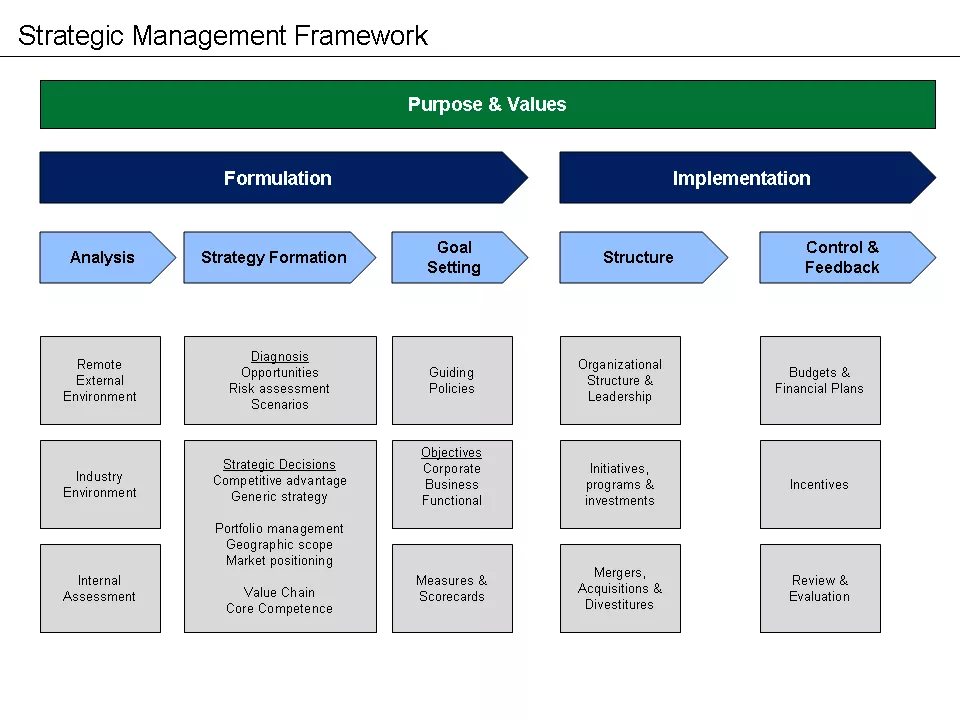
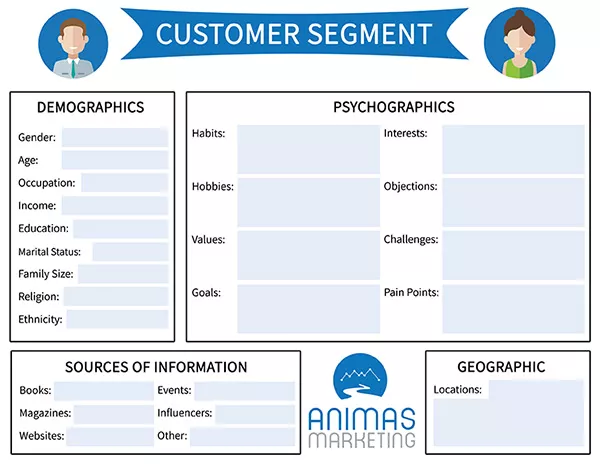
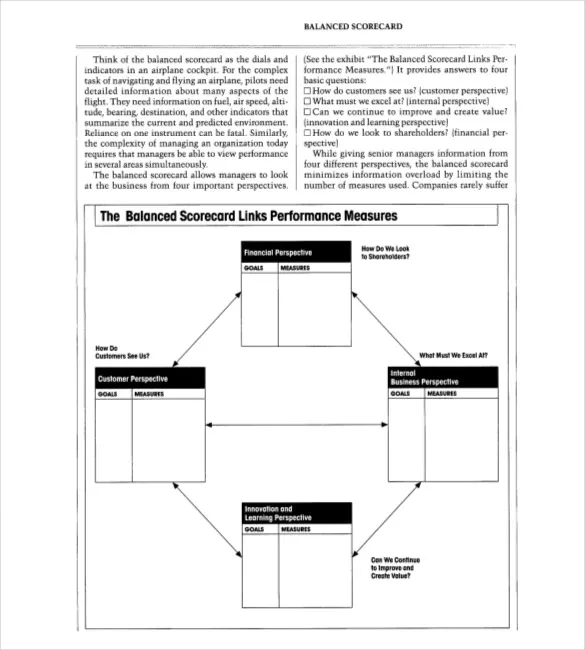
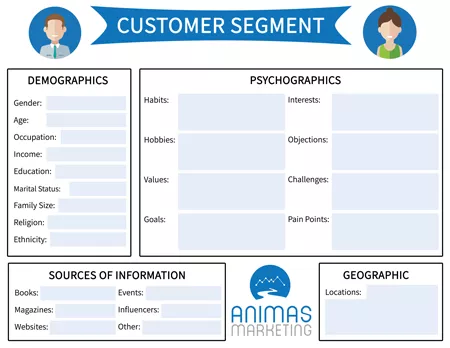
0 Comments